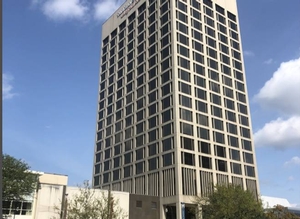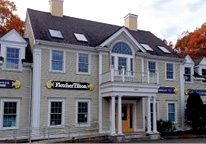Articles
Civil Litigation Basics 4 -- Negotiating an Armistice – Alternative Dispute Resolution and Settlement
By Michael E. Brangwynne on December 20, 2019This is the fourth installment in a series about the basics of the civil litigation process. If you are interested in reading the first three installments, they are available on Fletcher Tilton’s website under the Knowledge Library.
An Introduction to ADR
As we discussed in the first article of this series, civil litigation at its core is a process for resolving legal disputes between two or more parties. United States citizens have a constitutionally protected right to access to the judicial system as a default method for resolving such disputes. That is not to say, however, that the parties cannot by agreement choose a different method – other than proceeding through the court system and a trial – by which to resolve their disputes. This is generally referred to as alternative dispute resolution, or ADR, and it typically takes one of three forms: informal settlement negotiations, mediation, or arbitration.
Negotiation
The British poet George Herbert wrote that “a lean compromise is better than a fat lawsuit.” Indeed, mounting legal fees, costs, disruption to business and the uncertainty of victory can lead even the most stalwart litigant to the bargaining table. There should be no indignity attached to what can often be a pragmatic decision.
The simplest form of ADR is picking up the phone and calling your adversary. Assuming a lawsuit has already been threatened or filed, this is best accomplished lawyer to lawyer. While direct settlement communications between the parties themselves are not prohibited, such communications are generally ill-advised, as it is possible that a party might inadvertently bind himself to a settlement agreement without a proper consideration or inclusion of all the necessary terms.
Settlement negotiations can take place at any time, and it is not uncommon for settlement agreements to be reached before a lawsuit is filed, at the close of discovery, on the courthouse steps during trial, or even after a jury has returned with a verdict in favor of one of the parties (typically to avoid an appeal). Once the terms of the settlement are agreed upon, the settlement is committed to a written settlement agreement and release of claims, which is an enforceable contract between the parties and a bar to future litigation based on the claims that gave rise to the lawsuit.
Mediation
Mediation is a more formalized settlement negotiation process at which the parties present their respective claims and defenses to a neutral third party, called a mediator, who is meant to assist the parties in reaching a reasonable settlement agreement. The involvement of a mediator – typically a lawyer, former judge or other professional with a background in the subject matter of the lawsuit – can prove helpful in quelling fevered emotions and providing an unbiased assessment to each party of the strengths and weaknesses of their claims, and of the settlement value of the case.
Importantly, the mediator does not have the authority to decide the outcome of the dispute. He can assist the parties in coming to an agreement, but at the end of the day, if the parties have reached an impasse, they will go their separate ways and the dispute will continue through the civil litigation process.
Arbitration
A third ADR is arbitration, wherein the parties submit their dispute to the authority of one or more arbitrators. The arbitrator is agreed upon and compensated by the parties and is often selected for his expertise in a particular field – for example the parties to a construction dispute could select an arbitrator with a background in the construction industry. The arbitrator assumes the role of both judge and jury and issues a decision that is binding on the parties. If one of the parties refuses to abide by the arbitrator’s decision, the aggrieved party can file a simple action in court seeking enforcement of the arbitrator’s decision.
Settlement, mediation and arbitration are always worth considering, and each has its advantages and disadvantages. If a dispute is not resolved through one of these alternative methods, then the parties are left with the default method – a trial on the merits.
Michael Brangwynne is a civil litigation attorney at Fletcher Tilton, concentrating his practice in commercial, real estate and construction litigation, medical and professional malpractice, and personal injury. He works primarily from the firm’s Boston and Worcester offices and can be reached at mbrangwynne@fletchertilton.com
© 2019.This material is intended to offer general information to clients and potential clients of the firm, which information is current to the best of our knowledge on the date indicated below. The information is general and should not be treated as specific legal advice applicable to a particular situation. Fletcher Tilton PC assumes no responsibility for any individual’s reliance on the information disseminated unless, of course, that reliance is as a result of the firm’s specific recommendation made to a client as part of our representation of the client. Please note that changes in the law occur and that information contained herein may need to be reverified from time to time to ensure it is still current. This information was last updated December 2019.
An Introduction to ADR
As we discussed in the first article of this series, civil litigation at its core is a process for resolving legal disputes between two or more parties. United States citizens have a constitutionally protected right to access to the judicial system as a default method for resolving such disputes. That is not to say, however, that the parties cannot by agreement choose a different method – other than proceeding through the court system and a trial – by which to resolve their disputes. This is generally referred to as alternative dispute resolution, or ADR, and it typically takes one of three forms: informal settlement negotiations, mediation, or arbitration. Negotiation
The British poet George Herbert wrote that “a lean compromise is better than a fat lawsuit.” Indeed, mounting legal fees, costs, disruption to business and the uncertainty of victory can lead even the most stalwart litigant to the bargaining table. There should be no indignity attached to what can often be a pragmatic decision. The simplest form of ADR is picking up the phone and calling your adversary. Assuming a lawsuit has already been threatened or filed, this is best accomplished lawyer to lawyer. While direct settlement communications between the parties themselves are not prohibited, such communications are generally ill-advised, as it is possible that a party might inadvertently bind himself to a settlement agreement without a proper consideration or inclusion of all the necessary terms.
Settlement negotiations can take place at any time, and it is not uncommon for settlement agreements to be reached before a lawsuit is filed, at the close of discovery, on the courthouse steps during trial, or even after a jury has returned with a verdict in favor of one of the parties (typically to avoid an appeal). Once the terms of the settlement are agreed upon, the settlement is committed to a written settlement agreement and release of claims, which is an enforceable contract between the parties and a bar to future litigation based on the claims that gave rise to the lawsuit.
Mediation
Mediation is a more formalized settlement negotiation process at which the parties present their respective claims and defenses to a neutral third party, called a mediator, who is meant to assist the parties in reaching a reasonable settlement agreement. The involvement of a mediator – typically a lawyer, former judge or other professional with a background in the subject matter of the lawsuit – can prove helpful in quelling fevered emotions and providing an unbiased assessment to each party of the strengths and weaknesses of their claims, and of the settlement value of the case.Importantly, the mediator does not have the authority to decide the outcome of the dispute. He can assist the parties in coming to an agreement, but at the end of the day, if the parties have reached an impasse, they will go their separate ways and the dispute will continue through the civil litigation process.
Arbitration
A third ADR is arbitration, wherein the parties submit their dispute to the authority of one or more arbitrators. The arbitrator is agreed upon and compensated by the parties and is often selected for his expertise in a particular field – for example the parties to a construction dispute could select an arbitrator with a background in the construction industry. The arbitrator assumes the role of both judge and jury and issues a decision that is binding on the parties. If one of the parties refuses to abide by the arbitrator’s decision, the aggrieved party can file a simple action in court seeking enforcement of the arbitrator’s decision. Settlement, mediation and arbitration are always worth considering, and each has its advantages and disadvantages. If a dispute is not resolved through one of these alternative methods, then the parties are left with the default method – a trial on the merits.
Michael Brangwynne is a civil litigation attorney at Fletcher Tilton, concentrating his practice in commercial, real estate and construction litigation, medical and professional malpractice, and personal injury. He works primarily from the firm’s Boston and Worcester offices and can be reached at mbrangwynne@fletchertilton.com
© 2019.This material is intended to offer general information to clients and potential clients of the firm, which information is current to the best of our knowledge on the date indicated below. The information is general and should not be treated as specific legal advice applicable to a particular situation. Fletcher Tilton PC assumes no responsibility for any individual’s reliance on the information disseminated unless, of course, that reliance is as a result of the firm’s specific recommendation made to a client as part of our representation of the client. Please note that changes in the law occur and that information contained herein may need to be reverified from time to time to ensure it is still current. This information was last updated December 2019.

















